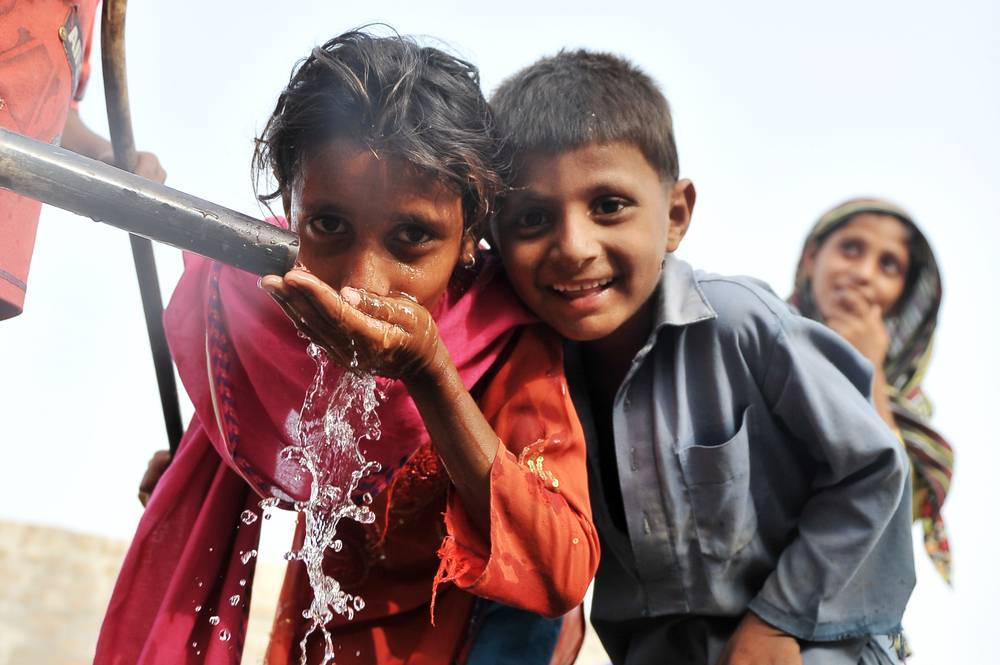At Karachi’s Sindh Institute of Child Health and Neonatology, eight-month-old Manahil Zeeshan fights a high fever, severe cough and breathlessness.
Doctors suspect typhoid, a disease caused by Salmonella Typhi bacteria, but treatment is complicated by a lack of definitive diagnosis and growing antibiotic resistance.
A Nation Grappling with Typhoid
Pakistan is grappling with a rising typhoid problem. The World Health Organisation estimates that globally, typhoid affects 11 to 20 million people each year, leading to between 128,000 and 161,000 deaths, with the highest fatality rates seen in children under four years of age.
A significant problem is the emergence of a typhoid superbug — the extensively drug-resistant (XDR) typhoid. This strain of bacteria has grown resistant to many antibiotics due to their indiscriminate use, according to Dr Jamal Raza, the executive director of the Sindh Institute of Child Health and Neonatology. This issue has been echoed in a Lancet study in 2022, stating the rise of multidrug-resistant (MDR) typhoid in Asia, with Pakistan particularly affected.
Antibiotic Resistance: A Growing Threat
The overuse of antibiotics, in healthcare and self-medication, is causing bacteria to become resistant, leading to “superbugs” that are hard to treat. Dr Mashal Khan, chairperson of the government-run paediatric medicine department at Karachi’s National Institute of Child Health, stresses the urgency of this situation. According to Khan, we’re running out of new antibiotics, and there’s an increasing need for rational use of existing ones.
Developing new drugs is challenging and expensive, and with antibiotics losing efficacy over time, they are not a lucrative area for pharmaceuticals. The issue is exacerbated as typhoid is primarily endemic in low and middle-income countries, where resources are limited.
Vaccination: An Effective Weapon
In light of these challenges, vaccination is a cost-effective method of controlling typhoid. In 2019, Pakistan became the first country to introduce the single-dose typhoid conjugate vaccine (TCV) into its routine immunisation regime. However, despite these efforts, Pakistan remains one of the ten countries with the highest number of unimmunised children, according to WHO.
The Covid-19 pandemic further impeded the country’s immunisation programme. An estimated 1.5 million children missed out on basic vaccines from March to May 2020, according to Gavi.
Sanitation and Hygiene: Vital for Prevention
Alongside vaccination, access to clean drinking water and improved hygiene practices are crucial for typhoid prevention. There is a clear correlation between sanitation, literacy levels, and typhoid infection rates, as shown by a study co-authored by Dr Jai Das at the Aga Khan University. However, improving water quality and sanitation remains a significant challenge in Pakistan.
International Impact
The XDR typhoid bacteria in Pakistan have travelled across borders to the UK, Canada, and the US. This is according to a report published in the American Journal of Tropical Medicine and Hygiene. The Lancet study further indicates that South Asian strains of typhoid have spread 200 times to other countries since 1990.
The increasing prevalence of typhoid superbugs underlines the urgent need for newer and stronger antibiotics, widespread vaccination, and improved water and sanitation. It is a national concern with global implications, affecting the health and well-being of millions.
In Conclusion
The rise of antibiotic-resistant typhoid in Pakistan underscores the global threat these superbugs pose. This issue underlines the necessity for global collaboration in research, investment in vaccination programs, and sanitation improvements. Misuse of antibiotics and lack of public awareness further amplify the problem. Ultimately, the situation in Pakistan reminds us that public health issues know no borders. Therefore, it is emphasizing the need to invest in health globally, especially in developing nations. It’s not merely humanitarian goodwill, but a strategy to ensure global health security.

